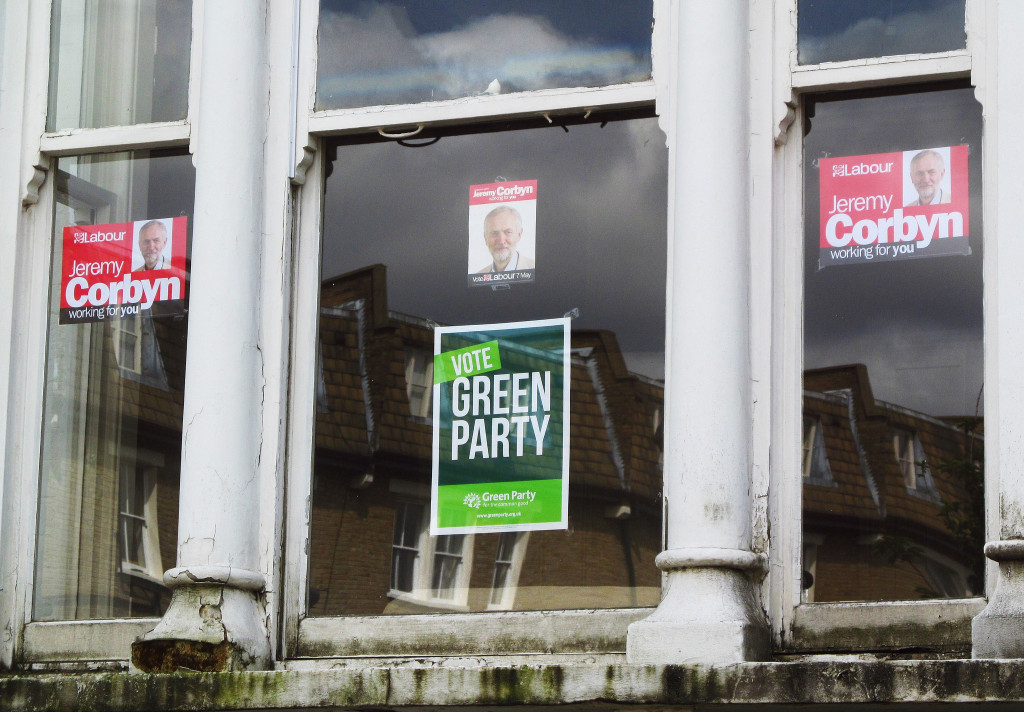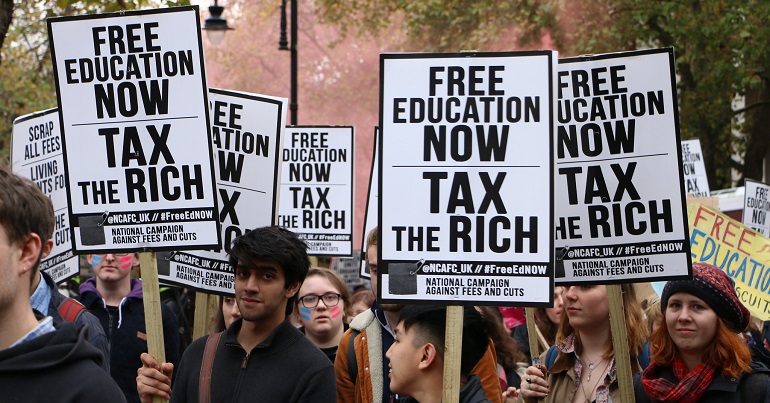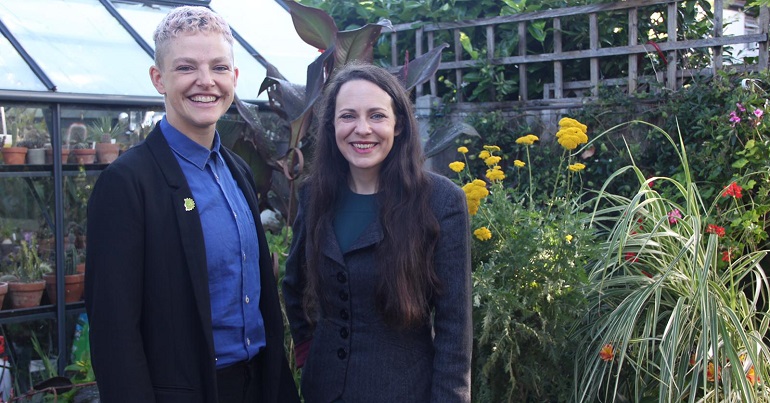New political tribes – who should Greens be targeting?
Back in 2013, during my campaign to be Elections Coordinator of the Green Party I wrote a piece laying out my thoughts on who we should be targeting in the European elections a year later. I did this because all too often Green Party political strategy focuses on what we should be saying to the exclusion of who we should be talking to. The party has never before done much work on breaking down it’s potential supporters into demographic groups and working on how to best appeal to them.
It’s widely recognised by political psychologists such as Lakoff and Westin that party choice is much more an expression of identity and belonging than a careful weighing up of the menu of policies on offer. Having not made inroads into creating our own ‘community’ of voters outside of a small environmentalist core, we’ve only done well when identified as the best way to express a protest vote. This explains our success in 2009 during the expenses scandal, and why we didn’t do so well in 2014 when UKIP dominated the anti-establishment terrain.
Back in 2012, the answer to this question was fairly straightforward when you sat down and thought about it: a coalition of a) the (small) Green core vote b) old-Labour types and c) migrants, metropolitans and assorted UKIP-haters. We got some good results off the back of being the only party standing up to UKIP’s toxic rhetoric.
Now, in 2016 with Corbynism on the block this is far less simple. But it’s worth taking a look today at Opinimum’s new research on ‘Political Tribes’[http://opinium.co.uk/wp-content/uploads/2016/09/Dead-Centre-British-politics4_lr.pdf]. It’s a decent attempt to make sense of shifting ideologies within the British electorate, and is very familiar to the models the Tories used in 2015 and Britain Stronger In Europe used this summer.
Some of it is pretty sobering reading. Whilst there is a lot of good news towards people’s attitudes towards the state and the economy, the elite’s project to blame immigrants for their failure has been fairly successful. Anyone concerned about defending welfare will also need a stiff drink.
So what does it tell us?
- Potential green support is at least 19%
The research shows us three broadly left wing groups. When you look at the views of democratic socialists (8%), and progressives (11%), we see that they are the core of the people who voted Green in 2014 and 2015. It also shows that Progressives favour May over Corbyn for PM despite supporting left wing policies. This presents an opportunity for our new leadership team to present such ideas as public ownership, reducing inequality and job creation as common sense. These guys should be the bedrock of our support base at a national level. The other groups are too sceptical about immigration or economic intervention to ally with our positions on these.
Still, that’s a pretty good starting point.
- Chasing real Tory (and possibly Lib Dem) voters is a dead end
To be clear, I’m not talking about people on ordinary incomes in rural areas who usually vote Conservative here, I’m talking about voters who may agree with us on immigration or the environment, but oppose intervening in the economy or tackling inequality. This ‘new centre’ represents at least as much of the electorate as the progressive core mentioned above. Much better to focus on the progressive end of the electorate whilst working to shift views on immigration and welfare.
- There’s a substantial, worrying rise of ethnic nationalism
The authors of the research themselves point out that their ‘our Britain’ category, which represents 24% of the population, sees politics through an ethnic lens. Emboldened by the Leave campaign, 77% say that ‘Britain comes first’ over ‘treating all fairly’, and 51% prefer an isolationist approach to foreign policy. Most worryingly, 68% of these people believe “Being British means born here”.
This shows more than ever the need for Greens to be the voice in defence of multiculturalism. With a substantial base of people we can still reach to mentioned above, we shouldn’t be afraid of taking on this role if no one else is. It shows what happens when decades of toxic rhetoric goes unchallenged.
- The left is doing a good job on inequality, but not on immigration and welfare.
The main point made in the research is the total disaggregation of social and economic views among the public – huge numbers of people at the same time want to curb immigration, crack down on people on welfare whilst reducing economic inequality, banning zero hour contracts and bringing in a mansion tax. This observation won’t be new to many readers.
What it does suggest is that the left has done a decent job of popularising left wing economic ideas, perhaps in no small part down to Ed Miliband’s focus on such issues. It shows decisively that left wing politicians and campaigners can shift public opinion despite the best efforts of the Institute of Economic Affairs, the ‘Taxpayers’ Alliance and the rest of the right’s shock troops.
The fact that so much opportunity exists for the left on the economic front probably explains why otherwise brilliant commentators such as Paul Mason have advocated throwing free-movement overboard for the sake of electoral progress. Labour’s position on immigration at the moment is pure fudge, so it’s worth seeing what impact a strong Green message on the issue can do to public support, whether we can change attitudes in the same way the left has on inequality. Caroline Lucas and Jonathan Bartley’s speech to conference a couple of weeks ago made a good attempt to start on this.
What we should learn from this?
For me, this shows us that the Greens have a much larger potential base than is commonly discussed, 19% is nothing to be sniffed at, and it implies more than 1 MP and certainly more than a couple of hundred councillors. We have a job to do in convincing more people that the social safety net is a fundamental part of a decent society, and that it’s the rich, not migrants who’ve taken housing, healthcare and opportunity away from them.
The Bernie strategy, which wraps up issues such as climate, racial and gender justice in a populist message that blames inequality for society’s ills and lays the blame squarely at the door of the elite is something we need to learn from. Once people are listening to you about the ‘core’ issue, they’ll then be more willing to listen on the harder issues such as welfare and immigration. That’s how we can shift opinion in Britain.
Corbyn may be about to become re-elected, but we can’t rely on Labour to make the case for the kind of society we need to create.





There is potential for us to win over some of the ‘right wing’ vote with a radical Citizens Income approach to welfare (I.e. ending a system that can be worked by a small number of claimants) and a Land Value Tax that helps reduce taxes on work/wages and sends a positive signal to renters. We shouldn’t surrender these people to the right.
I think we’ve attracted as many disaffected Labour voters as we ever will. Time to look towards other people. All this talk of a progressive alliance is wishful thinking, in my view
You need only to look at the range of groups that make up the Climate Coalition to identify allies and supporters.
These include the Womens’ Institute (nearly a quarter of a million women and 6,300 branches) whose members have been marching, lobbying, and spreading the word on Climate Change since 2009.
Put aside any prejudices about Jam, Jerusalem and cake. According to its website, the WI provides training on Climate Change. It has Climate Change Ambassadors who collect case studies on how their communities are being affected, lobby politicians and give talks to local groups. It provides resource packs on how to lobby MPs effectively, and demonstrate that there is a groundswell of opinion to put the subject at the top of the political agenda.
Surely this is the kind of grassroots movement that the Green Party needs to turn into voters?
19% of the vote is not good enough-for us to have any realistic chance of becoming the largest party in the House of Commons, which is what we need to get our policy implemented, we need to be getting at the very least 33% of the vote in a multi-party situation.
As I reiterated during the leadership campaign, we must also reach out to more small ‘c’ conservative and small ‘l’ liberal potential Green voters (there are lots of these in the west of England and in Cornwall) as well as the progressive potential Green voters. We need to be a broad green church.
So are you suggesting, at the end, that thej way to reach out to new/strayed voters within the 19% is to follow Bernie’s path and put everything under the umbrella of inequality as created by the elite? Focus on that umbrella message?
Whilst what much of what you say has merit, as a Councillor fighting in a Tory area I disagree with the idea that we cannot win over such voters to at least vote for us in certain circumstances. I cannot help but think the number of Tories who voted me in. We are in a danger of Corbyn crowding us out of the Democratic Socialist vote. Please define Progressive (this can a rather catch all term) and where are such people putting their votes at the moment?
I am disappointed by the lack of comments!!
Certainly 19% is not to be sniffed at so we need to start work now to make sure we achieve this before 2020 as we never really know when there will be elections??